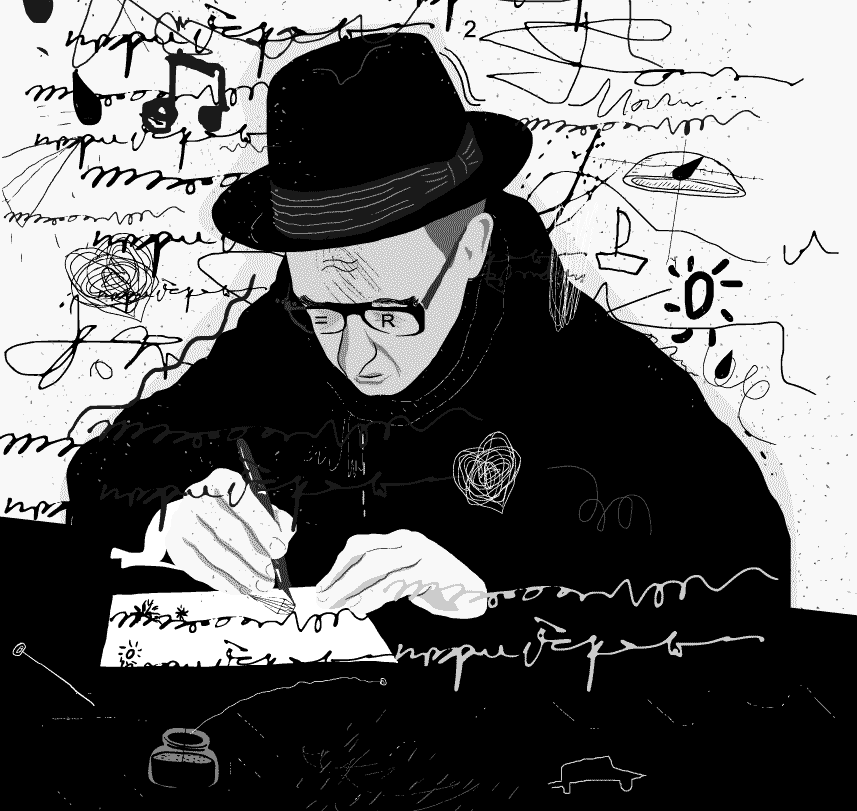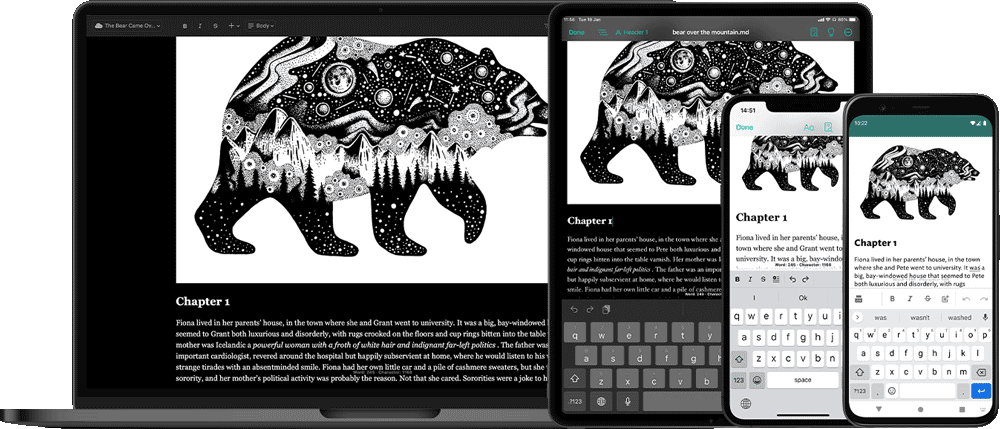8 Interesting Ways To Find Your Writing Inspiration, According To Famous Authors
In need of a quick creative pick-me-up? Here are 8 interesting ways that famous authors have found their writing inspiration, so you can take a page out of their book!

Writing inspiration can be fickle. Too many of us writers have been subject to its whims; We can be writing for hours on end without pause on good days, and also unable to write a single word on bad days. Indeed, writing inspiration really does come and go as it pleases.
But if you're planning to take writing seriously (or even make it a career of yours), then you'll need to equip yourself with the ability to make writing inspiration come to you!
And who better to consult than famous authors who have already put out their work to the world? Today, let's take a look at what some famous authors have been doing to find their writing inspiration!
1. Read works that you hate
“When I read work I hate, I get motivated to make something in opposition to it.” - Richard Siken
We're starting things strong with an odd one. A common piece of writing advice is to read something you love and take inspiration out of it, but what of the opposite?
American poet Richard Siken mentions that reading work that he hates strangely motivates him to start writing. And while it may sound counterproductive at first, there may just be some truth to it. Love and hate are both sides of the same coin, after all.
When you read something that you dislike, you may just get all fired up to write something you do love. As you read, you start envision how you'd make improvements to the work, or how you'd put your own spin on this work.
(Or, maybe you'd get so frustrated about the work you're reading that you stop, determined to write something much better!)
2. Take notes about your childhood

Photo by Markus Spiske on Unsplash
Your childhood experiences can be a valuable resource for writing inspiration. Not only were we more likely to get into dastardly adventures, the magical aspect of looking at the world through a child's eyes can add a sense of wonderment to your story.
Author Tobias Wolff took inspiration from his childhood when he wrote his work, This Boy's Life. According to him, the idea for the book came from the notes on his childhood and moving around with his mother.
Of course, not all of us had unique and interesting experiences as children. For those of us who led relatively plain lives, here's another way you can get some writing inspiration...
3. Take a normal situation and make it not normal
Normal situations and life experiences can be a source of writing inspiration too! With just a little creativity and twist, you can turn a normal situation into a thrilling, magical and even terrifying one! English novelist Mark Haddon used this technique for writing inspiration for his book, The Curious Incident of the Dog in the Nighttime.
Try to look at a normal situation in your life: going to school, petting a stray cat, getting some boba from the neighborhood shop. Think of ways to give these situations a little creative twist, and watch where it brings you!
For example, you could write about a day in your life... but from your pet dog's point of view. Or perhaps you could write about a regular day at the beach... except there's a monstrous shark waiting for its next meal.
4. People-watch and imagine their lives
Sonder: the realization that every passerby is living a life as rich and vivid as your own
Some of you may have experienced sonder without even knowing that there is a word for that realization! Sonder can be an incredibly powerful source of writing inspiration, especially if you enjoy writing character-driven stories.
Author Judy Blume shares that she enjoys people-watching and imagining their lives. It may sound strange at first, but filling in the blanks as you watch people walk by can give your creativity that little jolt it needs!
Next time, try sitting at a park or in a coffeeshop, and watch people walk by. Try to come up with who they are, where are they heading to, what do they enjoy doing in their spare time, and create a whole backstory simply based on that one glimpse you had of them!
Simply carry a notebook, or download a writing app onto your phone, and write stories about the passersby as you go! With JotterPad, you can write on whatever device you'd like – web, iOS, iPadOS, Android – and access your files across all of them with the cloud sync system.

5. Take inspiration from photos
Maybe people-watching isn't quite for you. After all, staring at anyone that walks by can get a little awkward...
For our fellow homebodies out there, give this method a try to tickle your writing inspiration. All you have to do is scour the Internet for pictures and write short pieces based on these images. Pinterest, Tumblr, or even just a plain old Google Image search can do the trick.
Alternatively, simply look through JotterPad's collection from high-quality images from Unsplash! You can search up these images within the app itself, and add them into your document for easy access.

This activity forces you to work your creative muscles by imagining and writing a story based on just a single image. Eventually, you'll find that it becomes much easier to come up with story ideas, simply because you've gotten used to being creative on the fly.
5. Read & work on ancient literature
Madeline Miller's The Song of Achilles was a product of her interest in Patroclus and Achilles' relationship as glimpsed in The Illiad. And it was this interest that led her to fill in the blanks of this ancient piece of Greek literature and come up with The Song of Achilles, a story that explored Patroclus and Achilles' relationship in a way that The Illiad never did.
So, if you're ever wanting for more writing inspiration, consider looking at some ancient myths or stories! Take a page out of Miller's book and fill in the blanks of these ancient stories, or even give your own little spin on these tales.
6. Keep your own inspirational journal

If you frequently struggle with writing inspiration, you may want to look into creating your very own inspirational journal.
In this journal, you can collect anything interesting that catches your eye and save it for future reference. For example, an old photo, a crushed flower, a love letter you found pressed between the pages of a library book. You may not be in need of writing inspiration now, but these keepsakes may come in handy when you're in a creative drought.
Author of The Brief Wondrous Life of Oscar Wao, Junot Diaz, got his main inspiration for the book from an old picture of his father, which he had kept in a folder.
7. Work on something else
A common struggle among many writers is losing interest and writing inspiration while writing their current work! It's terrifying and frustrating to suddenly lose steam when you've already made it so far into the story.
Too often, writers will force themselves to keep writing until the story is finished. However, the end result is usually less than satisfactory, simply because their passion is absence in their words!
Instead, don't be afraid to put your current work aside for the moment and work on something else until your writing inspiration has returned. You're not wasting time – you're simply recuperating and giving your brain a chance to recharge.
That is exactly what Joshua Ferris, author of Then We Came to the End, did despite being 250 pages into the manuscript. He put the work to rest for a while, and eventually turned himself over to a different manuscript.
With JotterPad's cloud sync service, you can safely leave your work in a cloud service of your choice, and return to it whenever you'd like. With a cloud service, you'll no longer have to worry about losing your old, unfinished work when you change devices.

Losing writing inspiration can be tough, but we urge you to not give up! We hope that this article has given you some ideas on how to regain your writing inspiration, and keep trudging on. You've got this!

